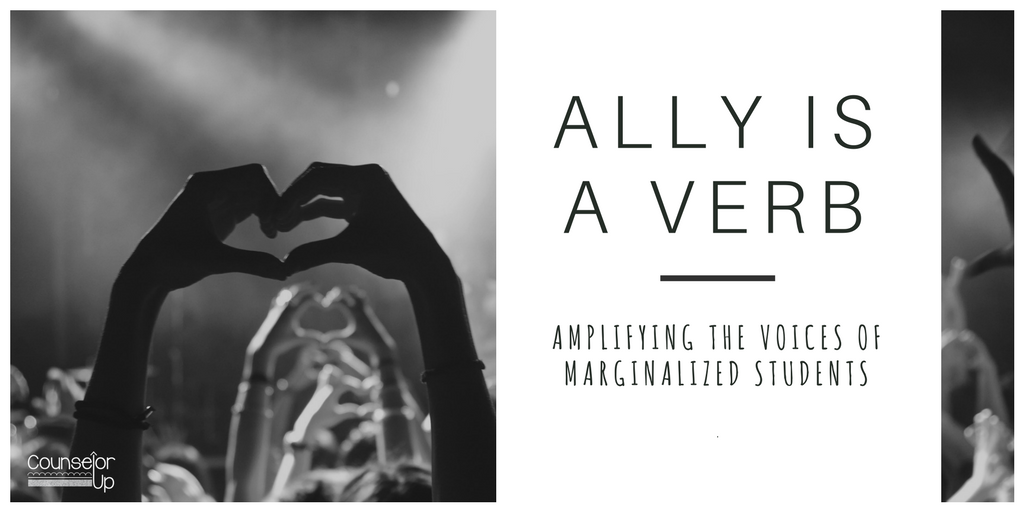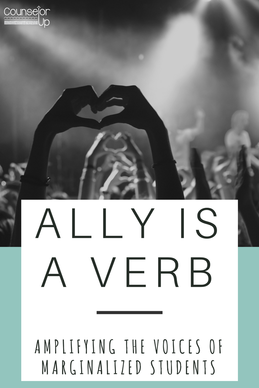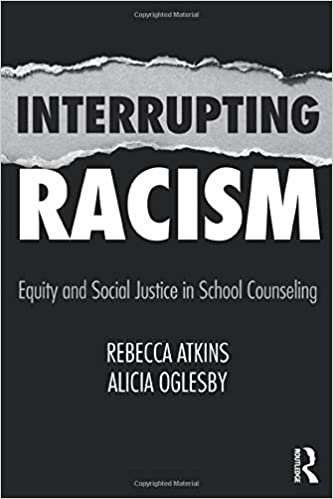Allyship
But that’s pretty abstract, so let’s break that down.
Marginalized groups are groups (usually minorities) whose views and experiences are shut out of (and misrepresented in) important conversations. This makes them vulnerable to harmful discrimination and abuse, because being marginalized means no one with power hears you or, sometimes, even cares.
That means the work of allyship is mostly about demarginalizing those groups and reducing harm: learning to listen to them, amplifying their voices, inviting them into power, and educating yourself and other privileged people about their histories and views. It also means questioning your relationships to the power and privilege that you get by not being marginalized, or by being only partially marginalized. Editor note: to learn more about privilege, I recommend the Truth for Teachers podcast on the subject.
Amplifying Voices
Amplifying marginalized voices and listening to them is the central work of moving them in from the margins. I’m thankful to be a member of a community group, Sunday Assembly, that has hosted LGBTQ organizations to teach us and connect with us, but I’ve recently been putting in the time to research local leaders of other marginalized groups to invite: indigenous groups, disabled groups, immigrant groups, etc. Obviously, I want to learn about these groups and their experiences, but I’m also hoping that we’ll make lasting connections with them and even work together.
Of course, we can’t learn everything in person – especially since it’s rare that someone gets paid to teach against ignorance. Ultimately, it’s on us to learn for ourselves and teach each other. And it’s important to remember that it is not anyone’s responsibility to answer our questions, whether they’re a coworker, on twitter, or in your family. No one has to explain their medical details or their struggles. Even people who choose to teach still have lives outside of teaching. Emotionally processing and expressing those experiences is hard work, as is brainstorming solutions for someone who “just wants to help.”
Learning Deeply
Unfortunately, there are many groups to learn about because our system marginalizes so many different people, but I’ve found that the more groups I learn about, the better mental framework I have for how our system tends to hurt and marginalize people.
You can start by making sure you listen to and read black, indigenous, disabled, female, gender non-conforming, and LGBTQ voices. Follow those people on Twitter. Bookmark and follow the black or LGBTQ websites for hobbies or interests of yours: movies, sci fi, environmental issues – these groups ARE out there, often because the central movement doesn’t headline their voices.
And here’s the thing: when you put marginalized voices into your media diet, you are setting yourself up for acts of allyship. Whenever you get excited enough about an article or a podcast, and you share it with a friend, you are doing the work of amplifying that voice. Hooray! Not every book or podcast you try will catch you, but isn’t that true of anything new? Don’t let one or two failures stop your efforts to find voices that connect with you.
As a final point, be on the lookout for where even marginalized communities are marginalizing some of their voices: a disability blog whose writers are predominantly male, a gay podcast whose hosts and guests are mostly white, etc. Multiply marginalized people face different issues than the more-populous, easier-to-see sections of any marginalized group, and you should make sure you are hearing their perspectives, too. The more often you listen to and read these viewpoints, the more aligned your thoughts will be with the marginalized groups you hope to be helping. Being well versed also helps when some racism or ableism fires across your bow in a conversation, which is what I want to talk about next.
Speak Up
Allies shouldn’t claim to represent a marginalized group, but they can still educate other privileged people about those issues, especially when marginalized groups aren’t present or are outnumbered. Having listened to marginalized voices helps immeasurably in these situations. You’ll more confidently recognize when something really is ableist, sexist, etc. When you speak, you’ll be specific about the harms it causes, which allows the offender to start thinking about fixing those harms. Besides, avoiding “don’t say that” also means you avoid letting bigots continue to think that they are saying “the truths no one else will say”; instead, they're plainly confronted with the harm they are creating.
But even when I know what to say, I’m still sometimes too shy to speak up. Here’s some perspectives I’ve learned that I hope will help you, too.
First, I realized that being silent is something I did to avoid being rude. Of course, they are the ones who have been hurtful and rude, not you. They crossed the line, and you’re just letting them know. Calling these remarks rude makes handling them easier, too: we don’t allow people to name-call or bully in our offices or friend groups, so why let bigoted speech slide? Like the rest, it causes real harm, it hurts the group’s ability to function, and it’s just plain unpleasant. You don’t want that in any of your spaces.
Second, the hardest part is getting that first sentence out. Most of the conversations I’ve had end quickly: the would-be allies want to learn, and the bigots tend to shut up when they meet resistance. Hopefully, they’re also learning that that garbage isn’t so well accepted and certainly isn’t welcome here. If they double down? That person is a toxic element in your group, and it’s crucial that you’ve discovered that, because…
Third, it’s an ally’s job to remove or reform the toxic elements from a space before you can have meaningful diversity/inclusion efforts. Otherwise, you’re just inviting people into harm (hat tip to Divya M. Persaud). By speaking up, you dispel the “polite society” of privileged spaces that continues to harm unopposed. Only by claiming a space for safety, instead of safety from repercussions, can we begin to demarginalize. And when we do stake these claims, we get to confidently continue to have friends who really care, or confidently walk away from those who refuse to reexamine the harms they cause.
Fourth, it’s easier to be ready to step up when you accept that you are not just hanging out with peers or family — you are hanging out with members of an empowered group that, through malice or ignorance, perpetuate their power by continuing to center themselves and failing to listen to marginalized voices. Feel uncomfortable around other privileged people, now? Good. Welcome to a fraction of the experience of someone in a vulnerable group.
When You Misstep
Instead of worrying about your “ally” status, you can focus on repairing the harm you’ve done, starting with an honest apology. Here’s how you do it: 1) Acknowledge the harm YOU have done and do your best to articulate which of your actions were harmful and how. 2) Make a plan to reduce that harm in the future. 3) Stick to that plan!
No matter where you are on your journey towards becoming a better ally, take a moment right now to reexamine what you’re doing and who you’re listening to. Ask yourself: how are you different from the systems of oppression you claim to be fighting? And while you’re figuring that out, remember that failure is an important part of growth, and that you don’t have to let those missteps define you or your work (hat tip to Native Appropriations). So keep pushing yourself and your communities to do better, and good luck.










